Best Kitchen Flooring Materials
Nov 20, 2023
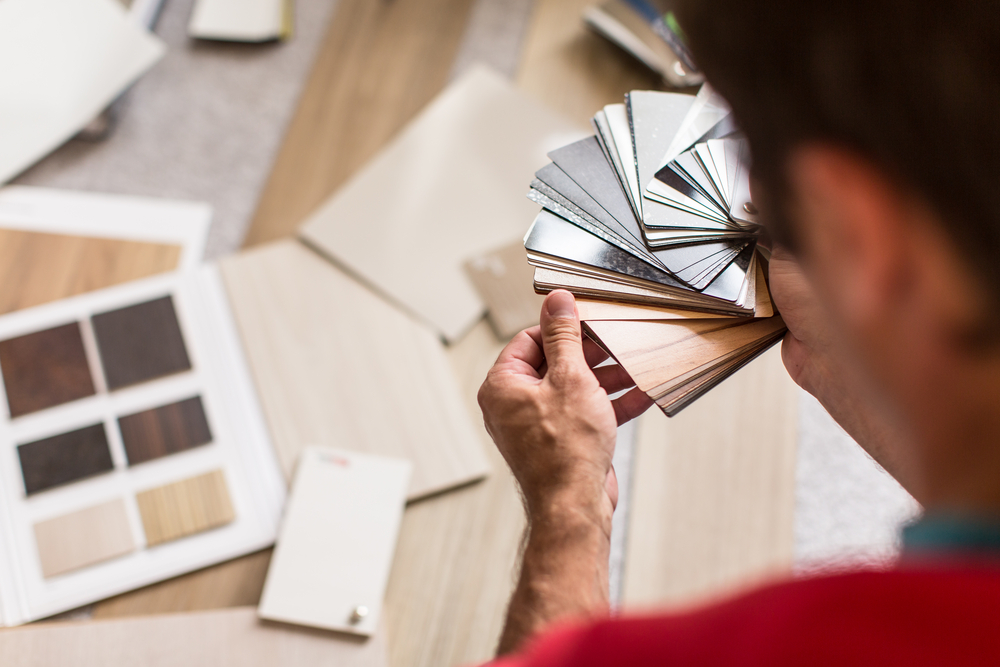
Your kitchen floor needs to be highly durable. Many things can happen to a floor on a daily basis, whether it be spills, heat, or accidentally dropped utensils. Your kitchen flooring needs to bear all the hazards and still look good. Not every flooring material is suitable for this space, and some materials last long and require less maintenance than others.
Durable kitchen flooring materials
The seven best kitchen flooring materials are:
Hardwood
Hardwood is an extremely durable material in most parts of the house. Though it doesn’t suit areas susceptible to moisture, such as bathrooms. In the past, hardwood wasn’t considered a wise choice for kitchens because moisture is an issue. However modern sealers and polyurethane finishes are contributing to the durability and longevity of hardwood floors, making them suitable for kitchens.
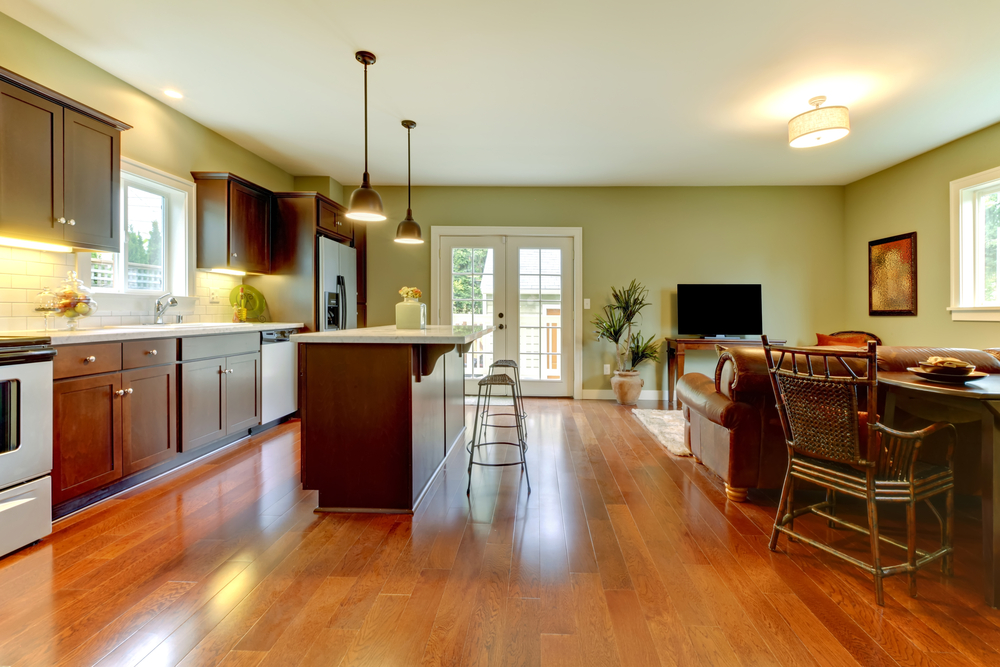
Compared to other flooring options, hardwood flooring is more vulnerable to developing moisture and stains. However, many people love the aged look of a well-used hardwood floor. Furthermore, solid hardwood flooring always gives you the option of sanding and refinishing the floor to make it look all new.
Advantages
- Gives your kitchen an elegant look
- Can be repaired and refinished easily
- Warmer and softer than tiles
- Increases the value of your home
Disadvantages
- Vulnerable to scratches, dents, and water damage
- Expensive
- Requires high maintenance
- Challenging to install by yourself
Bamboo
Bamboo is quite similar to hardwood in look and feel but is more resistant to moisture and water damage. To give your kitchen a classy and attractive look, bamboo flooring material is your right choice.
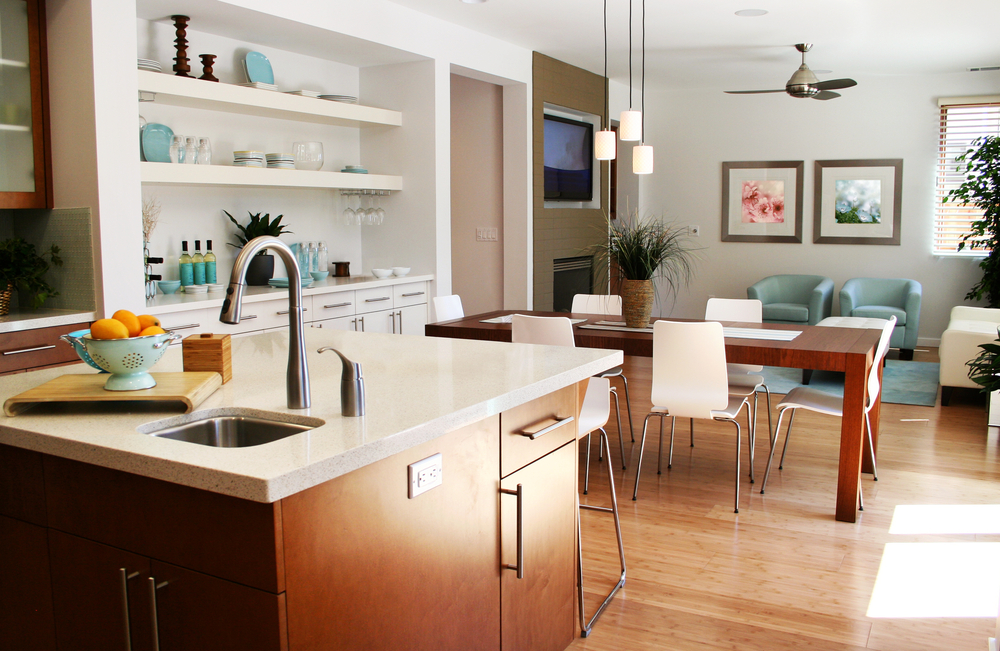
Bamboo is more expensive than hardwood though you benefit from its increased durability. It is more difficult to refinish since there is no natural grain direction to the material. Though with the help of a professional, refinishing is definitely possible.
Advantages
- Easy to clean and maintain
- Durable
- Eco-friendly
- Resistant to water and moisture
Disadvantages
- Vulnerable to developing scratches
- Sensitive to excessive humidity and water
Ceramic tile
Ceramic tiles are made from natural clay which is glazed, shaped, and fired under heat. This makes ceramic exceptionally durable flooring. It is extremely hard and highly resistant to water and stains. Additionally, ceramic tiles (including porcelain) are heat and breakage-resistant. Under normal situations, they can last forever with only minor changes to their appearance or functioning.
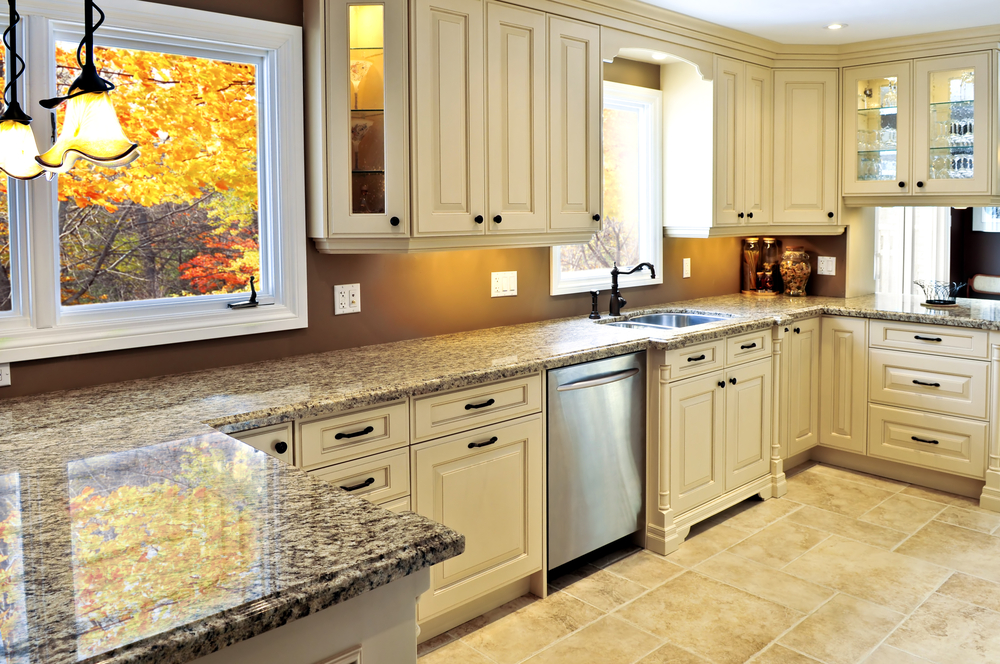
Ceramic tiles are available in a wide variety of shapes, colors, natural patterns, and sizes.
Advantages
- Durable
- Water and stain-resistant
- Cost-effective
- Easy to maintain
Disadvantages
- Slippery
- Hard
- Cold when barefoot
- Unsuitable for upper story installation
Concrete tile
Concrete flooring is another cheap and outlasting option for your kitchen, especially if you are living on the ground floor. Oftentimes, a concrete slab will already be present underneath the existing floor coverings. This surface can be stained, polished, or treated in several ways to make it appealing and stylish flooring for your kitchen. If there is no concrete slab available, you can install a new pour over a variety of subfloor surfaces. Concrete floors are mostly found in modern-style kitchens.
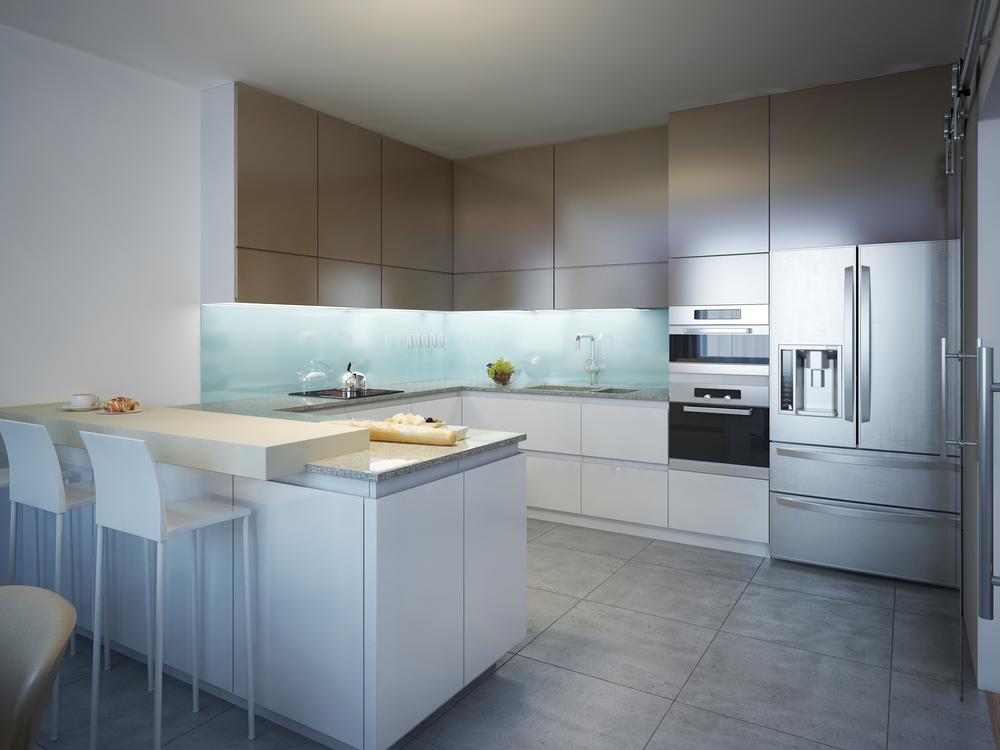
Advantages
- Durable
- Inexpensive
- Easy to maintain
- Available in various designs, shapes, and sizes
Disadvantages
- Susceptible to moisture
- Hard
- Feels cold on bare feet
Natural stone tile
Natural stone is a durable and lasting flooring option for any kitchen.
Natural stone flooring options include:
Natural stone gives your kitchen a very luxurious look. Granite and marble, in particular, both consist of an appealing veining that gives a floor a unique appearance. When it comes to selling your house, a kitchen with natural stone flooring is an added bonus.
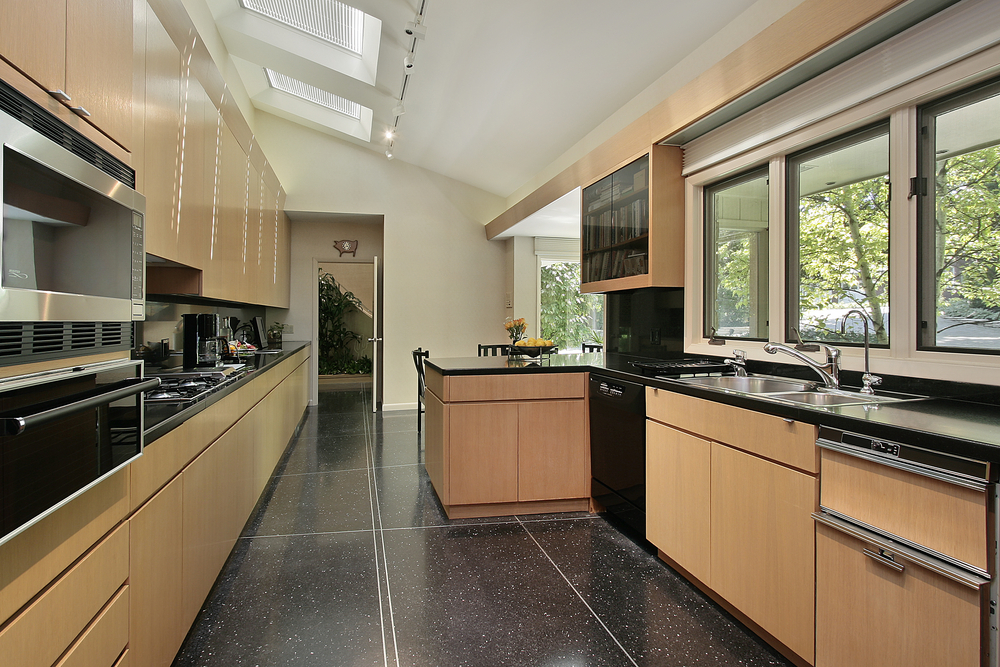
Natural stone is porous and vulnerable to water and liquid stain penetration, which are both common issues in the kitchen. However, this problem can be solved with a quality penetrating stone sealer. Annual applications help solve this problem by creating an invisible coat of protection over the stone.
Moreover, different types of stones have different characteristics such as scratch resistance, durability, and hardness. When properly sealed and maintained, granite and slate can last for years. Sandstone and travertine, on the other hand, are more likely to wear with time but still perform well over long periods. Polished marble is most likely to quickly develop scratches and stains.
Advantages
- Long-lasting
- Attractive look
- Easy to clean
- Not slippery
Disadvantages
- Expensive
- Porous
- Easily chipped
Linoleum
Linoleum was a popular kitchen flooring material fifty years ago and is now making a massive comeback. Linoleum is made of all-natural linseed oil, which makes the material environmentally friendly and easy to clean. If properly maintained, linoleum can last up to 40 years.
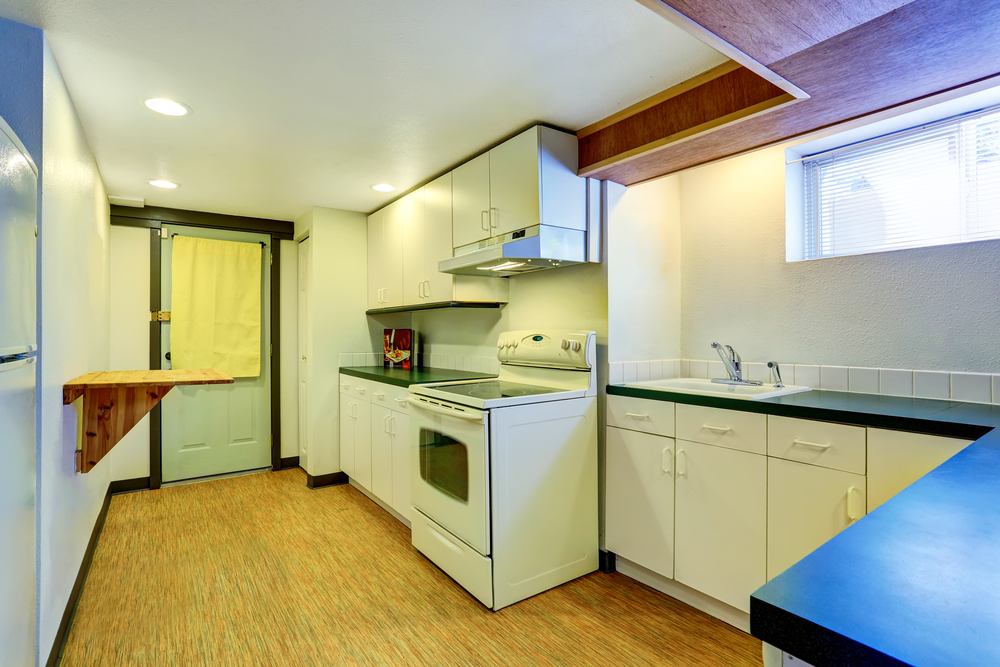
Advantages
- Flexible and soft
- Requires low maintenance
- Variety of colors and patterns
- Biodegradable and renewable
Disadvantages
- Turns yellow when exposed to light
- Susceptible to scratches
- Has an installation odor
Vinyl
Vinyl is the most convenient and versatile kitchen flooring option. It is a man-made material that is highly resistant to damage, stains, and water problems. Cleaning vinyl is easy as it can be kept through vacuuming, sweeping, or mopping.
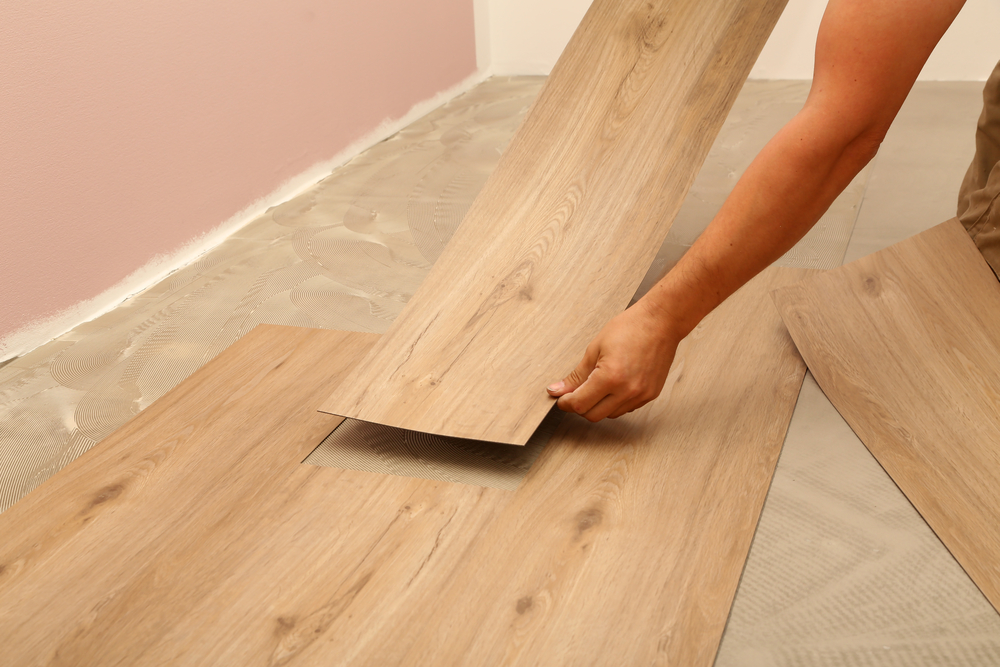
Vinyl can begin to wear after 7-10 active years of use in the kitchen. However, it is the least expensive and most DIY-friendly among all the other flooring materials. The modern version of vinyl flooring, luxury vinyl is a top-quality flooring option that is available in styles that look similar to wood or stone.
Advantages
- Inexpensive
- Water and stain-resistant
- Durable
- Comfortable
- Flexible design
- Easy to clean and maintain
Disadvantages
- Not biodegradable
- Not resistant to damage
- Hard to remove
What should you consider when choosing a floor?
Durability
Choose the material that can withstand frequent spills without leaving stains and is unbreakable when kitchen utensils fall off.
Resistance to water
Your kitchen is a semi-wet area so choose a flooring material that does not get damaged in case you or your child accidentally spills any liquid.
Easy to clean
Kitchens are areas highly prone to messes and spills, so ensure that your flooring is easy to clean.
Design-friendly
Choose a flooring material that complements the rest of your home. With a wide variety of kitchen flooring options available, you can select any material that is resilient and stylish.
Ready to install the perfect flooring?
Kitchen flooring must be durable, stylish, and require low maintenance. The proper installation plays a massive role in the longevity and strength of flooring material. Contact Flooring HQ to help you choose the best flooring material that matches your requirements. Our experienced professionals guarantee a clean and proper installation of your new kitchen flooring.

